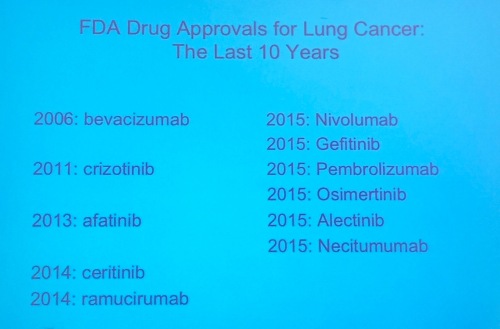Last week I spent two days at pharmaceutical companies in Cambridge MA (a mecca for pharma) describing my personal experience with cancer and clinical trials.
As an advocate/activist for lung cancer, I continue to represent the viewpoint that those of us in clinical trials should be treated with deference and respect. That words such as compliant and noncompliant should just go away. That we be compensated for our time just as healthy volunteers are. Perhaps most importantly, that no one lose track of the fact that we are human beings, who are enrolling in medical research not because we want an advanced degree in community service, but rather because we are hoping that these experimental therapies will extend our lives. As people, it is our right to assume that we will not be subjected to a plethora of non clinically indicated testing–we are more than our tissue. That we are pleased that our contribution will help others but that it is not and should not be our primary onus. We, like everyone else, wish to live. And we want to do so with dignity and respect. The current model of more blood, more sweat, more tears, more money has got to be realigned. If it is, recalcitrant issues like accrual and disparity will be addressed as well. Win win.
Blue in the face I am, repeating this message for so long now. However, and this is important, I am beginning to feel heard. The emphasis on partnering with patients—more an aspiration than a reality—means there is far greater interest in learning from patient experiences. ‘We are sentient beings’, I remind my audience. Unlike the white mice who are our direct mammalian predecessors when research moves from in vitro to in vivo, we can communicate. ‘Talk to us’, I say. Listen. Learn. Stop making it so damn complicated. Make us true members of the team and treat us like the astronauts we are.
In September I will have the opportunity to travel to Barcelona as faculty for the annual meeting of the IASLC. I will once again be discussing my experience in clinical trials. Patient as partner; and faculty. It has taken a long time and we have far to travel yet, but progress is being made.
Keep talking.






